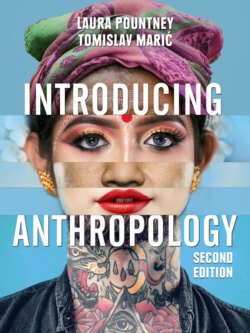Читать книгу Introducing Anthropology - Laura Pountney - Страница 93
Garry Marvin’s testimony (2015)
ОглавлениеMy ethnographic research has focused on events in which humans engage with animals and in which the death of animals is the usual outcome. My first research project was a study of the bullfight in southern Spain. Here I also explored the cultural significance of cockfighting. Since then, I have conducted fieldwork in the world of English fox-hunting and with European big-game hunters.
For many people, these are disturbing events because they apparently involve people enjoying witnessing or actually bringing about the deaths of animals. But through my research I have attempted to show that, while the events do generate pleasures for the human participants, such pleasures are complex and these complexities cannot be understood by mere outside observation. Matadors spoke to me about their love of bulls, game hunters expressed great respect for their quarry, and fox-hunters spoke with me of their admiration for the hunted fox. Such attitudes might seem odd when all of these people are involved with the deaths of these animals. My task was to listen attentively, to ask carefully and to observe attentively in order to generate understanding. In all these events, animals are killed, but I slowly came to understand that what was of cultural significance, and therefore of anthropological interest, was how these deaths are brought about. My work, as an anthropologist, has been to reveal and to interpret the cultural significance of performances with, and killing of, animals in these events. Here, what is important is that, as an anthropologist, I had to enter the worlds of bullfighting and hunting in order to understand them from within rather than to impose meaning on them from outside.
All these events generate considerable criticism from many people who are not part of them; and those people who are part of them are often suspicious of the motives of outsiders who come asking questions. In a crude sense, they are concerned that such outsiders might have a political animal rights/animal welfare agenda and are seeking access and information in order to criticize, to condemn and to discredit the event and its people in various ways. Such concerns caused some difficulties for me when I sought access to conduct ethnographic, participant observation research. The difficulties centred on people querying who I was, what I wanted to find out, what my motives were, what exactly this sort of research would involve and what I would do with the information I gained.
Observing the corrales in Spain. (© Garry Marvin)
At the outset of my research in Spain, I had no contacts and had on one occasion to turn to a supporter or a sponsor. However, a chance meeting with someone whose father was a member of a bullfight aficionado’s social club offered me an initial step forward. I was introduced to the club, where the members were initially suspicious of someone coming from a country where it was thought that people were fiercely critical of bullfighting. However, they seemed to accept my claim that I was not there to gather evidence against a supposedly barbaric practice. Their main concerns then became about testing my seriousness, my commitment, to understanding the bullfight world. Was it worth bothering spending time with me, talking to me and helping me? My genuine interest was accepted, and I spent several hours a day, almost every day of the week, in the club. This generated the conversations I wanted and the contacts I needed to go to bullfights with knowledgeable people, to meet matadors, to spend time on bull ranches. It was my willingness to immerse myself in their world that allowed me to generate the ethnographic material I needed for the project.
Seeking entry into the world of fox-hunting was far more difficult because of the political context and because people opposed to the event had, through deception, been able to gain access in order to obtain information for their political campaigns. Was I such an ‘anti’ in disguise? Could I be trusted? After a complex process of checking and vetting, I was gradually permitted to take part in fox-hunts as a foot follower, to jump into Land Rovers to keep up with hunts, to help with tasks on a hunting day, invited to social events and to ask what I wanted of anybody. This was as fine and as complete an access as I could have hoped for as an anthropologist. I could never prove that I was not an anti in disguise, and I think it is only when I was able to give members of the hunt world my academic publications that they could begin to see what it was that I was interested in accomplishing as an anthropologist.
In all this research I have had the great privilege to enter the worlds of others, and people there have given me the opportunity, and taken the time, to help me with my anthropological interests. My responsibility as an anthropologist has always been to respect the trust and the help of those I have been able to spend time with – without them I would have had no project. This responsibility has also been, in my publications, to reveal, represent and interpret these complex social and cultural practices and worlds in ways that capture the significances they have for those who inhabit them. They have opened their worlds to me, and I, as an anthropologist, must attempt to open these worlds for others.
